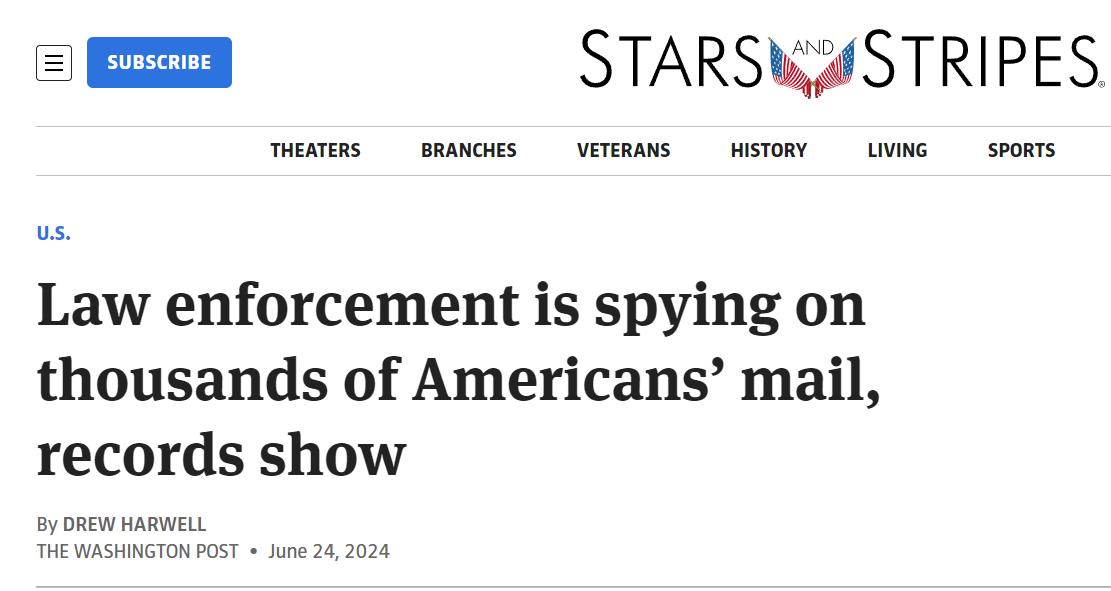
Records reveal that the U.S. Postal Service (USPS) has been sharing information from thousands of Americans’ letters and packages with law enforcement over the past decade. This practice, known as the “mail covers program,” involves conveying details from the outside of boxes and envelopes to federal agents and police officers without requiring a court order. Postal inspectors fulfill such requests primarily to aid in finding fugitives or investigating crimes. Notably, 97% of these requests were approved, covering days or weeks of mail sent to or from specific individuals or addresses. While the program is legal, the Fourth Amendment mandates a warrant for inspecting the contents inside the mail. The USPS’s law enforcement arm emphasizes that this surveillance service is focused on assisting police and national security agencies in their missions while protecting the public.
Here are some key points supported by multiple sources:
- U.S. Postal Service (USPS) Involvement:
- The USPS has been sharing information from Americans’ letters and packages with law enforcement for the past decade.
- This information includes details from the outside of boxes and envelopes, such as names and addresses.
- No court order is required for this sharing of external information.
- Frequency and Approval Rate:
- Since 2015, the USPS has received over 60,000 requests from federal agents and police officers.
- Approximately 97% of these requests were approved.
- Each request can cover days or weeks of mail sent to or from a person or address.
- Mail Covers Program:
- The surveillance technique, known as the “mail covers program,” helps track down suspects or evidence.
- It is legal, but inspectors only share what they can see on the outside of the mail; peeking inside requires a warrant.
- The IRS, FBI, and Department of Homeland Security are among the top requesters.
- Recent Congressional Inquiry:
- In May 2023, a group of senators urged the USPS to require a federal judge’s approval for such requests.
- They also requested more transparency about the program to inform postal customers.
- Additional Source:
In summary, the USPS’s involvement in sharing mail information with law enforcement has raised concerns about privacy and transparency. While the practice is legal, there are ongoing discussions about the need for greater oversight and safeguards.